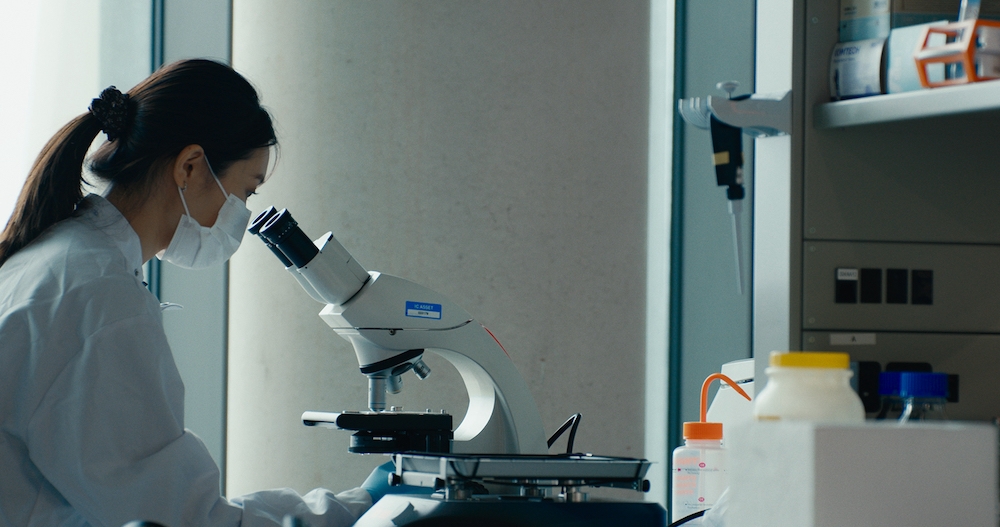Dementia is one of our greatest global health challenges, and it is growing rapidly: the number of people in the UK living with dementia is projected to increase to 1.6m by 2040 – with global cases set to triple to 153m by the year of 2050. The economic and personal cost is staggering. In the UK, the estimated cost of dementia to our economy is £35bn per year, equivalent to nearly a quarter of the NHS budget. Currently, 1 in 4 NHS hospital beds is occupied by a person living with dementia.
Historically, the level of investment into dementia research has not reflected the scale of the challenge. Dementia research is chronically underfunded globally, and this has negatively impacted progress. As a consequence, our understanding of neurodegenerative diseases lags far behind that of other disease areas.
The UK Government has committed to change this by doubling dementia research funding to £160m/year by 2024/25. In doing so, the Government has rightly recognised the UK’s potential to be a world leader in neurodegeneration research, thanks to our unique combination of strengths in discovery science, world-class digital data and cohorts, biomedical research charities, and NHS research capacity. However, to achieve that ambition, it is critical that the Government strategically directs funds towards filling the knowledge gap in dementia and improving our understanding of neurodegenerative diseases.
Dementia research is at a turning point. Two new drugs, lecanemab and donanemab, have recently demonstrated for the first time that Alzheimer’s disease can be slowed, offering hope to millions of people. But the effects are relatively modest, and the drugs will be difficult to deliver as things stand. Now is the time to capitalise on early signs of progress and double down on the fundamental research that will lead to more effective diagnostic tools and treatment methods for dementia. Only then will we be able to strengthen UK science, create jobs in R&D, reduce the cost of dementia to the UK economy, and – most importantly – improve the lives of people living with dementia and their loved ones.
The galvanising role of discovery science
Discovery science is the engine that drives all subsequent stages of research. We cannot develop new drugs and diagnostics to help patients until we understand the biological processes that underpin neurodegenerative diseases. The success of lecanemab and donanemab would not have been possible without decades of previous research into the mechanisms of Alzheimer’s disease.
Due to historic underinvestment in discovery science, the dementia research pipeline is underpowered. This is starting to change due to recent Government investments, but a large knowledge gap remains.
Compared with similarly complex disease areas like cancer – which has attracted sustained, strategic research funding – our understanding of neurodegeneration lags behind, and we have fewer researchers, publications, clinical trials and available treatments (Figure 1). Strategic investment into cancer research has not only yielded vital breakthroughs for patients, but also attracted £billions in investment from industry and created jobs: a recent analysis by CRUK estimated that every £1 invested in cancer research generated £2.80 of economic benefit in 2020/21. This substantial progress in cancer offers a blueprint for success in tackling neurodegenerative diseases.
Even now, with a more developed and mature research pipeline, Cancer Research UK still invests a large proportion (41%) of its research funds into discovery science, recognising that this drives progress. The same principle must now be applied to neurodegenerative diseases. To make new treatments possible, create jobs and attract investment, the Government should fulfil its commitment to double dementia research funding to £160m/year, and strategically direct that funding towards discovery science.
Figure 1: progress in Alzheimer’s and cancer research
In the UK, for every one dementia researcher there are four researchers working on cancer.1
Globally, since the year 2000, 2,500,000 papers have been published on cancer, compared with under 180,000 on Alzheimer’s disease – nearly 15x fewer.2,3
Since 2000, nearly 90,000 clinical trials have been run in cancer, compared with under 3,000 in Alzheimer’s disease.4,5
The FDA has approved over 200 drugs for cancer since 2000, compared with just seven for Alzheimer’s disease.6,7
Discovery science at the UK DRI
At the UK DRI, we are conducting world-leading discovery science to fill the dementia knowledge gap. Our unique structure draws together the expertise of six top UK universities and the diverse skills in their teams, as well as external partners from across the UK and internationally. We have attracted the brightest scientific talent from overseas to conduct research UK: 1 in 3 of the UK DRI’s Group Leaders relocated from abroad to take up their posts. The result is a highly multidisciplinary and collaborative community of researchers, working together to answer fundamental questions about the brain. Crucially, we are also leveraging private investment from charities and industry to take our discoveries out of the lab and translate them into treatments.
Since our inception in 2017, the UK DRI has quickly become one of the most cited institutes in the field. Through our Research Themes, we unite experts across the institute, the UK and the global research community to foster collaboration in key areas of scientific inquiry and drive progress. UK DRI scientists have already been at the forefront of major advances in dementia discovery science, including studies on the genes that underlie Alzheimer’s disease, Parkinson’s disease and Huntington’s disease; the identification of changes in the diseased brain that contribute to nerve cell loss; and a new form of testing for motor neuron disease (MND). Every new discovery brings us closer to finding new cures.
Statement published June 2023
Banner image: Copyright UK DRI Ltd


